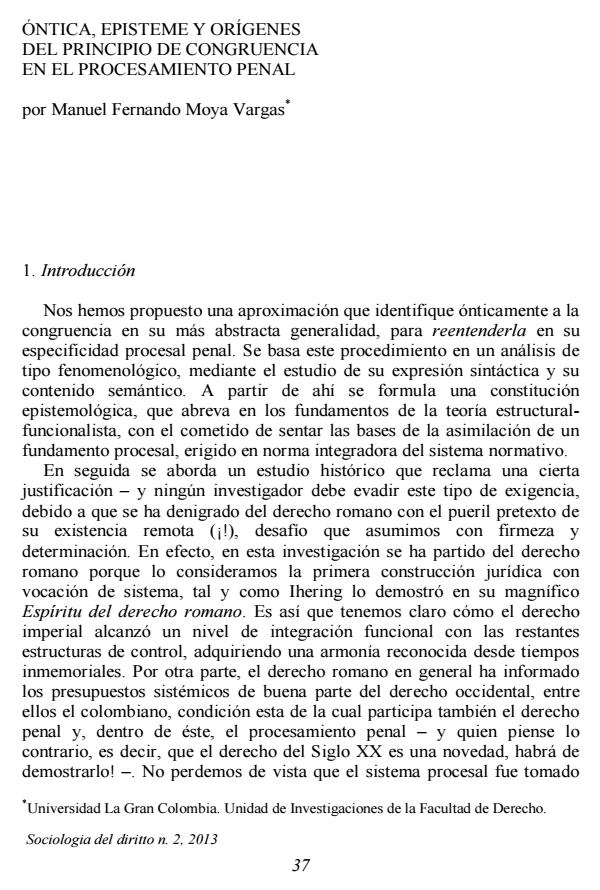Ontica, episteme y orígenes del principio de congruencia en el procesamiento penal
Titolo Rivista SOCIOLOGIA DEL DIRITTO
Autori/Curatori Manuel Fernando Moya Vargas
Anno di pubblicazione 2013 Fascicolo 2013/2
Lingua Spagnolo Numero pagine 28 P. 37-64 Dimensione file 257 KB
DOI 10.3280/SD2013-002002
Il DOI è il codice a barre della proprietà intellettuale: per saperne di più
clicca qui
Qui sotto puoi vedere in anteprima la prima pagina di questo articolo.
Se questo articolo ti interessa, lo puoi acquistare (e scaricare in formato pdf) seguendo le facili indicazioni per acquistare il download credit. Acquista Download Credits per scaricare questo Articolo in formato PDF

FrancoAngeli è membro della Publishers International Linking Association, Inc (PILA), associazione indipendente e non profit per facilitare (attraverso i servizi tecnologici implementati da CrossRef.org) l’accesso degli studiosi ai contenuti digitali nelle pubblicazioni professionali e scientifiche.
Il principio de congruenza in materia penale viene attualmente inteso come un criterio di legalità, in quanto richiede che vi sia una certa identità fra l’imputazione e la sentenza, per cui si può condannare soltanto colui che sia stato incriminato per fatti e delitti da cui l’accusa ha preso le mosse. Tuttavia, il principio di congruenza non è stato creato per svolgere quest’unica funzione. Originariamente, nel processo penale romano, esso apparve anche al fine di permettere ai cives di svolgere uno stretto controllo sull’attività dell'accusa, cosicché, ancora prima di essere una condizione di legalità, esso rappresentava un meccanismo di controllo sociale sull’attività giudiziale.
Parole chiave:Indictment - Congruence - Control of criminal law - Criminal proceedings - Verdict]
- El principio de congruencia en los procesos penales. Una reconsideración basada en la semiótica jurídica Manuel Fernando Moya Vargas, in Derecho Penal y Criminología /2020 pp.13
DOI: 10.18601/01210483.v40n109.02
Manuel Fernando Moya Vargas, Ontica, episteme y orígenes del principio de congruencia en el procesamiento penal in "SOCIOLOGIA DEL DIRITTO " 2/2013, pp 37-64, DOI: 10.3280/SD2013-002002